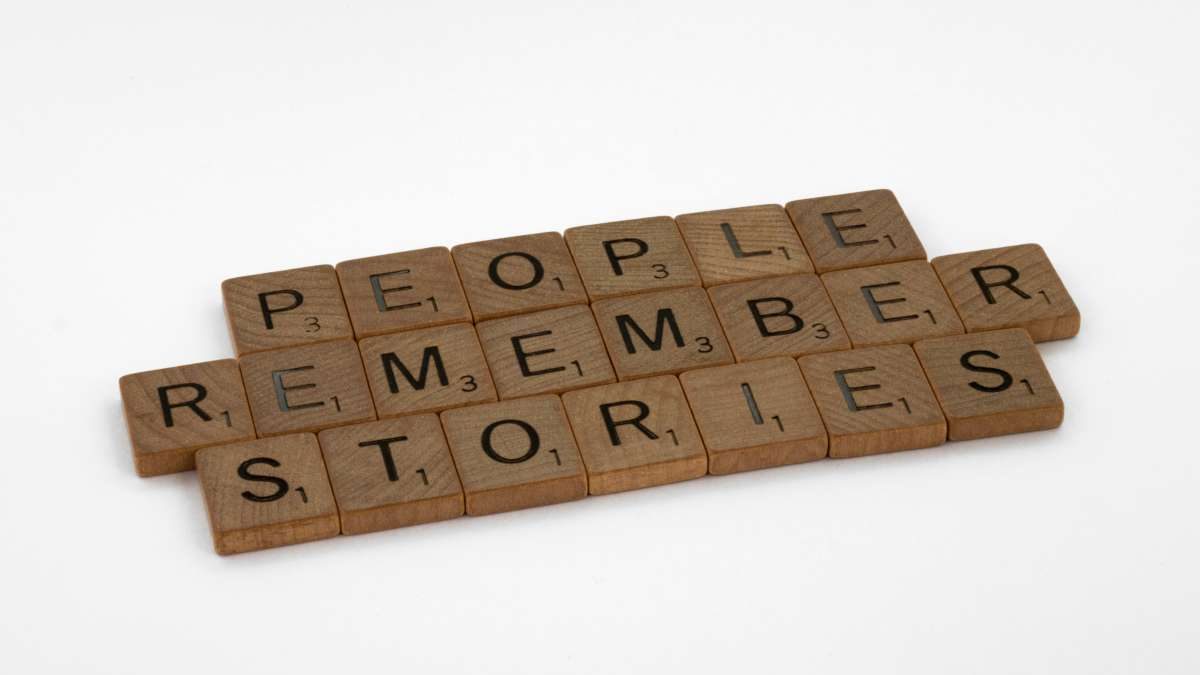
Here’s why copywriters have to ‘unlearn’ what they were taught at school
January 30, 2024
Lessons from Hollywood’s awards ceremonies all aspiring winners need to bear in mind
February 9, 2024From bedtime stories to classic epics, stories are embedded into our lives. But why should stories be a priority in your marketing?
Think about it. The most heart-warming and gut-wrenching content we see are charity appeals or John Lewis Christmas ads. This is an objective fact (Google it). The common thread which connects these two, arguably very different, advertisements is their use of storytelling.
Human brains prefer a progression of events
When human brains are presented with data, they get overwhelmed and struggle to memorise it. However, connecting emotion and motivation and plot to a concept makes it much easier to follow. Human brains more easily draw links between plot points and create connections which are much more memorable than statistics.
Surely, you remember a really embarrassing thing you said 10 years ago more than the price of that shirt you thought looked nice then never bought last week. It’s because of the story. Your brain remembers the result of a progression of events much more easily than a number on a piece of card, even if that amalgamation of memories has no bearing on your current life.
Human brains process emotions more easily when relating to someone else
Empathy and apathy are what define human connection; an understanding of others and the ability or inability to metaphorically place yourself in someone else’s shoes, no matter how metaphorically tightly they’re squeezing your metaphorical feet.
All humans are capable of empathy, even if it is the tiniest amount. Stories take advantage of this to make us feel things. Take The Lion King, for example. We sob like babies when Mufasa dies (spoilers), but he’s not our father, so why? They’re drawings of lions that move. It’s empathy. The phenomenon of imagining if you were the little lion cub in distress, how you would feel. The answer is probably not good.
Empathy also allows us to channel the emotions of someone else experiencing something we are familiar with. In the case of The Lion King, it’s loss, or the fear of it. We relate our experience to little Simba begging his father to get up and see ourselves in him. So perhaps we’re not crying over Mufasa at all. In fact, we’re probably crying about something else entirely; something personal.
That’s how stories get you. They present a fantasy world where lions can sing and dance and small birds don’t die after getting sat on by elephants and they know that somewhere in there, you’ll find a little bit of yourself.
Physical changes that happen in the brain
Moving from lions to brain chemistry, results from studies which monitor brain activity while interacting with a story prove a connection between input and chemical release. Emotionally-charged or relatable stories cause parts of the brain to release excess dopamine, creating a memory which is easier for us to recall.
There has definitely been a time when you have been so absorbed in a book, so hooked by those strange markings of ink on highly processed wood, that you imagine yourself there as if the action were unfolding right in front of you. Your own little film in your mind. Good stories transport the audience and leave them with memories and messages they’ll carry with them for life.
Neuroscientists still debate which areas of brain activity contribute to this effect, if any at all, but from personal experience we all know the feeling.
If you’re looking for support with storytelling in your marketing, get in touch.



